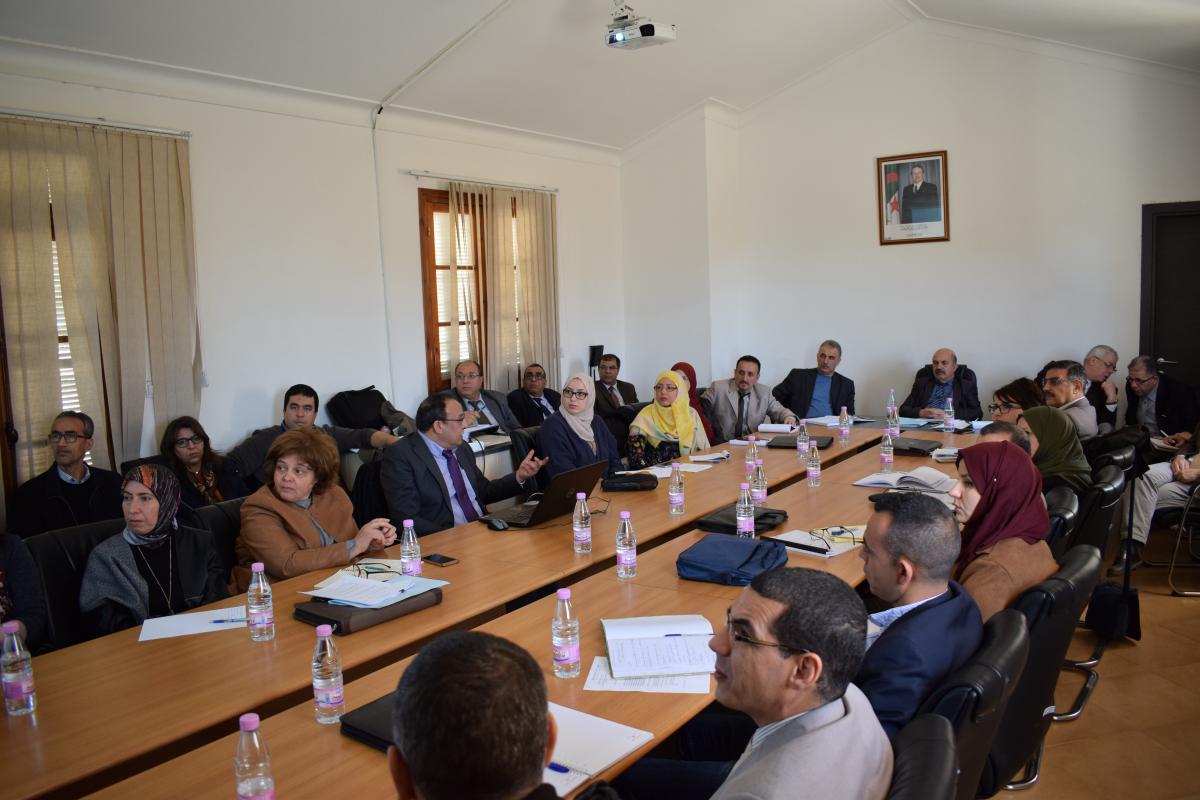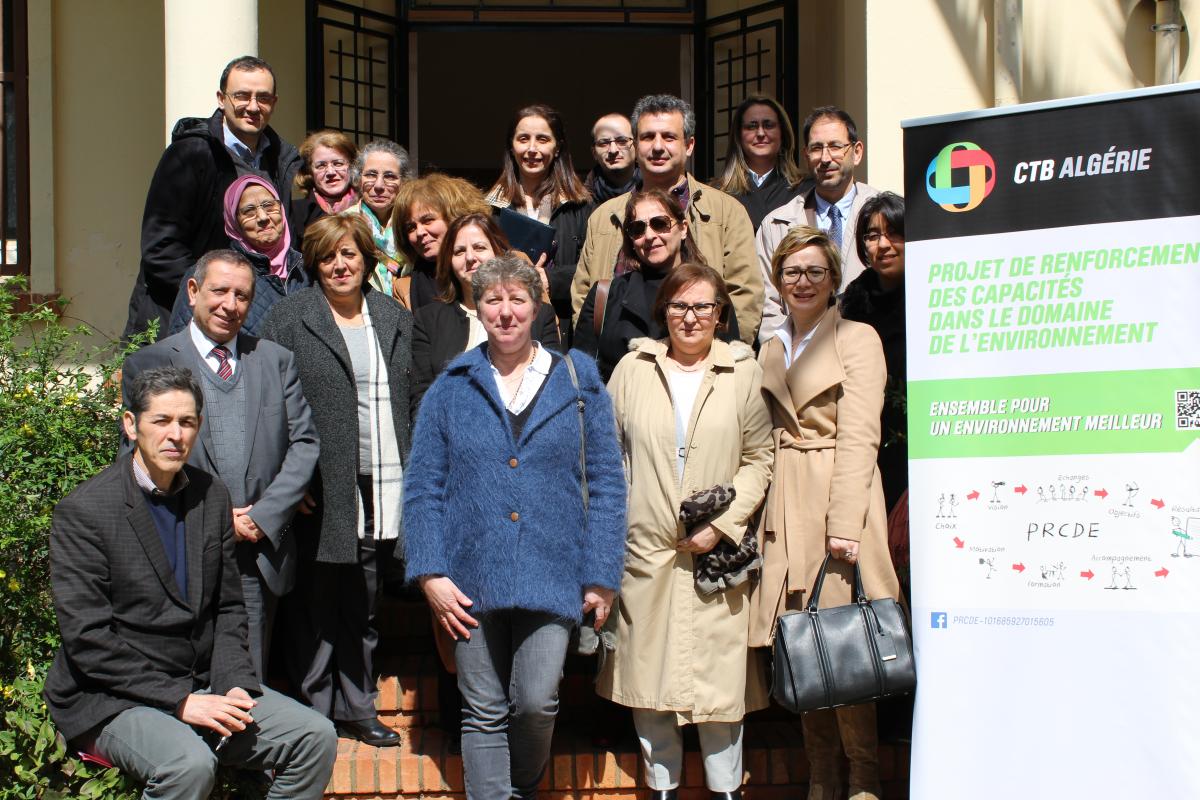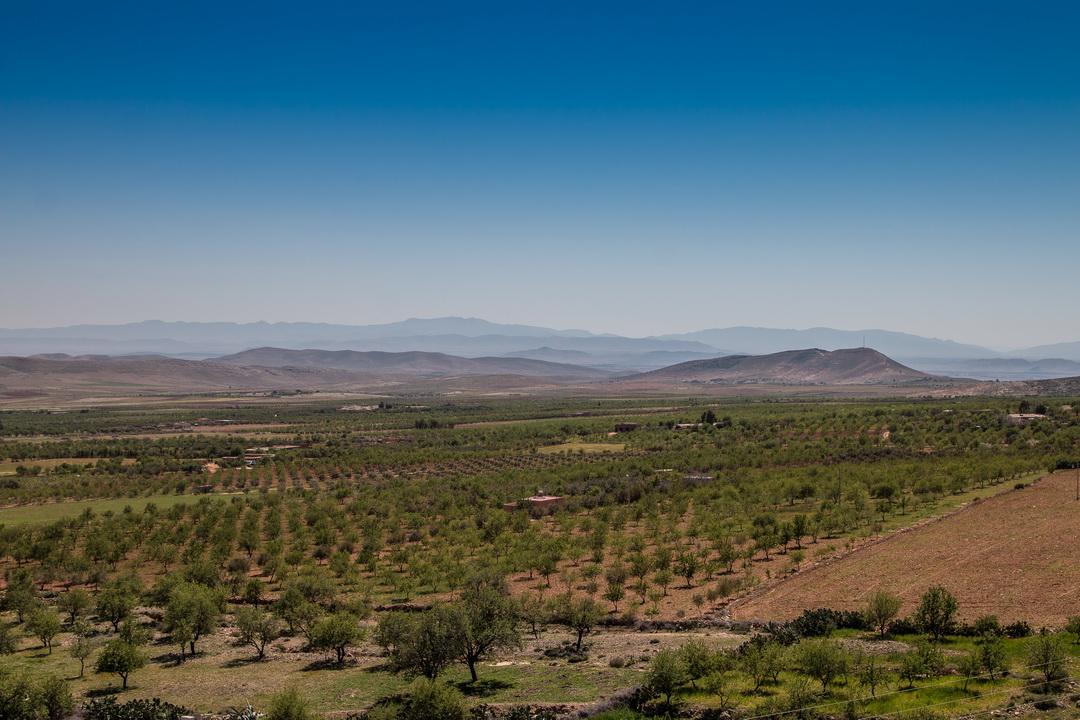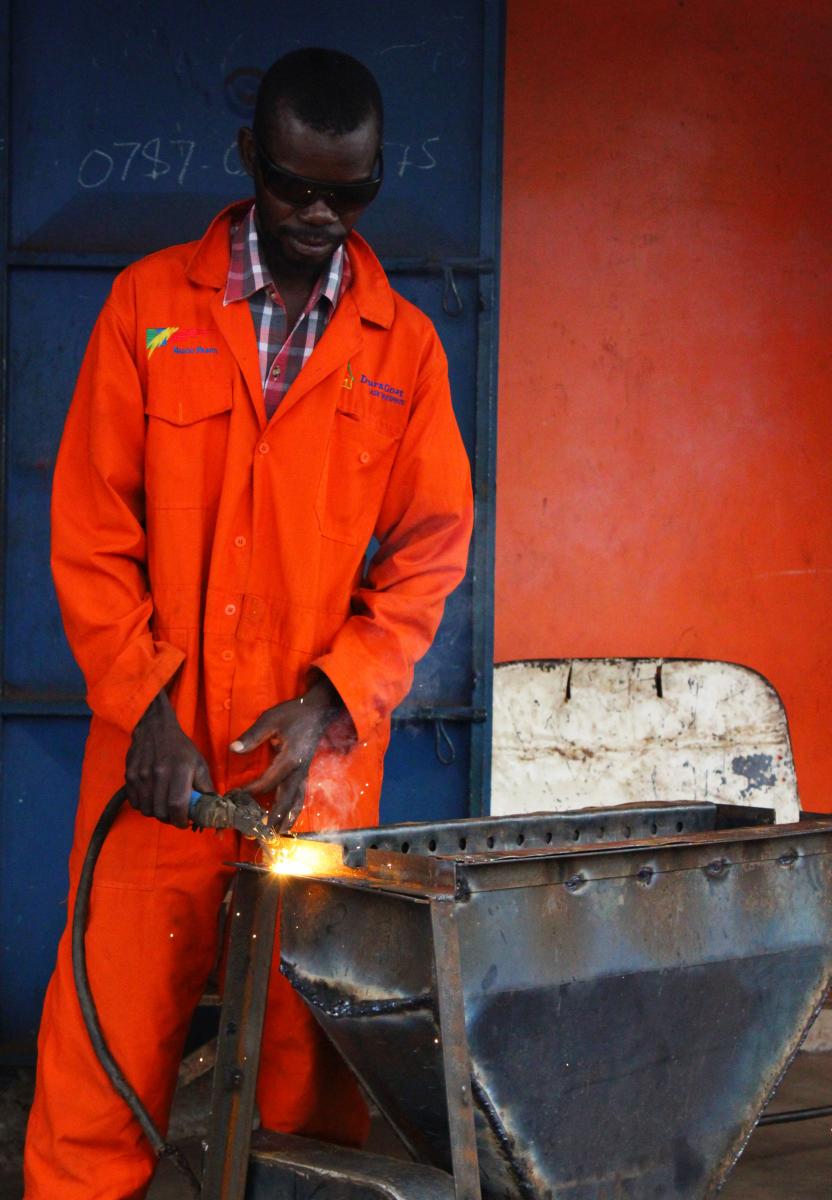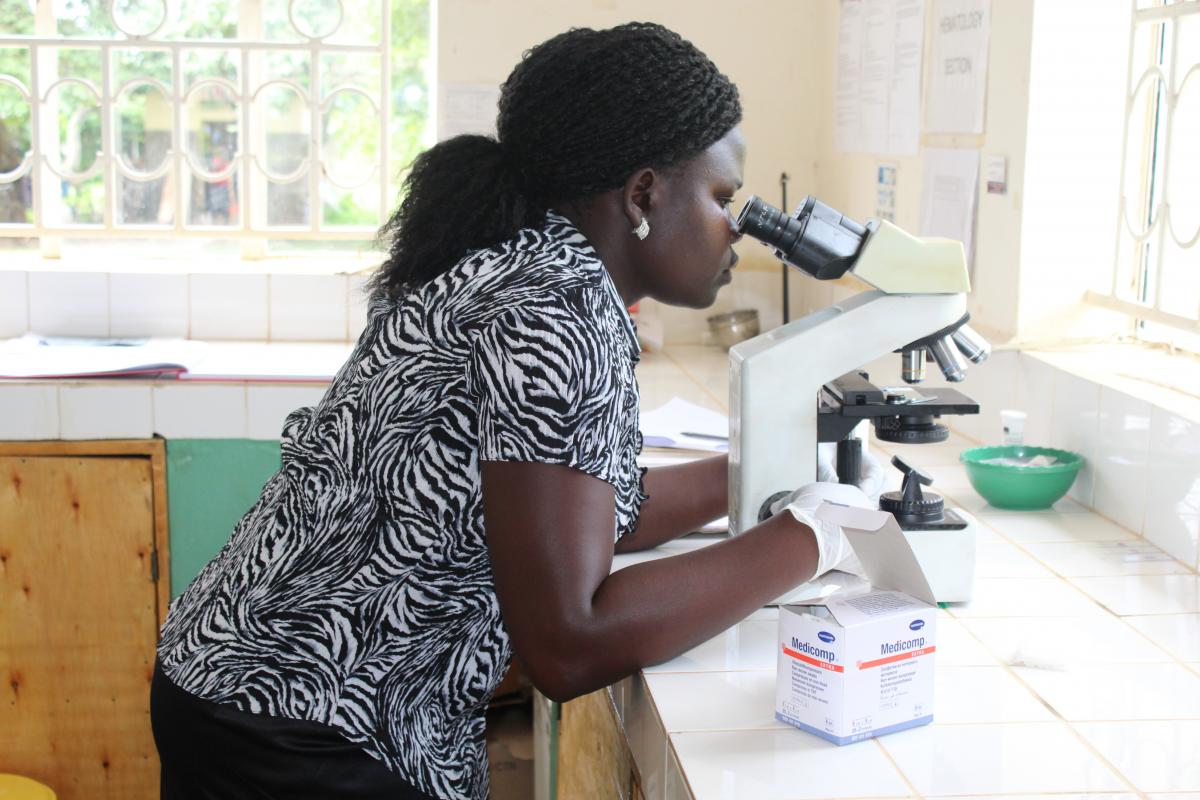Search
Viewing 2475 to 2490 of 3122 news
-
Drug stock outs a thing of the past for Holy Family Hospital Nyapea
Rachael AYEBALE | 05/10/2018
Holy Family Hospital Nyapea is located in the depth of the new Zombo district and has been in existence for over 31 years. This health facility is historically a private not for profit health facility serving the community under the Catholic church. Being nonprofit poses major challenges in running the facility such as, financial inadequacy, inadequate infrastructure, human resources skills gap, drug supplies management and others.Of the above challenges, improper drug supplies management was stifling the facility with drug shortages thus the hospital administrative team decided to sit and review the issues and found that, drug handling personnel lacked proper that led to major stock outs of essential drugs, and thus when the Support to the Development of Human Resources project was carrying out a needs assessment, the hospital administration quickly grabbed the opportunity and prioritised a Supply Chain Management training to assist them close the gap.The training was attended by 17 staff; managers, mid managers and drug handlers in all departments. “After the training we drew an action plan to address our challenge, clearly indicating the action point, performance indicator, and timeline for implementation”, affirms Dr Jammy Omara, a medical officer at the facility and training participant. “I must say the training registered a success as you shall see from our performance indicators” he adds.The facility has been able to adopt a Vital Essential Necessary (VEN) system with a list of essential drugs classified along the system. This system greatly assists in determining what drugs are purchased to avoid waste of resources.Unlike in the past when drug orders were uncalculated, now orders are only made for essential drugs. The facility is now able to calculate daily and monthly consumption from the store in a timely manner.Storage of drug has also greatly improved. All drugs are now labelled in the store and organised. They have also acquired shelves, some lockable to better store and protect drugs.They have formed a therapeutic committee that analyses drug usage, cost analysis reports, benefits analysis for drug accountability purposesDr Mark Bramali, also a medical officer and participant in this training confirms that they have been able to reduce drug stock outs to 11% from 36%. He asserts that even the 11% would be much less if it weren’t for situations beyond their control such us delayed delivery schedules of the suppliers.To further address the issue of drug stock outs, they now order for essential drugs that are running our early enough, as early as 2 weeks to stock out in projection of the ones in the store. Thus they have been able to save about 14 million per year on drugs wasted, which to a facility that operates on a very small budget is substantial money.Kafeero Ibrahim, a registered nurse and participant of the Supply Chain training confirms that there has been a great improvement in drugs storage, drug stock outs have reduced significantly, there is now prioritisation of drugs procured, and dispensing log books are now in place and regular updates of drug stock cards to estimate drug usage.In conclusion, Dr Jammy mentions he on behalf of Holy Family hospital Nyapea is very grateful to Enabel for helping them close this gap that was stifling their facility.” We are glad Enabel did not force a training on us that may have perhaps been irrelevant to our needs. They came and assessed our needs and gave us an opportunity to identify and prioritise our own needs that we urgently needed training in. The trainer brought us did not disappoint and Holy Family Nyapea hospital is now on track as far as stocking essential drugs is concerned.’’
-

Volet Institutionnel du Programme d’Appui au Développement des Filières Agricoles: Des bases jetées pour assurer la pérennisation des stratégies, méc
Reece-hermine ADANWENON | 04/10/2018
Septembre 2019 consacrera, la clôture du Programme d’Appui au Développement des Filières Agricoles (PROFI) Volet Institutionnel (VI). En prélude à cette clôture imminente, les différents acteurs se sont réunis à l’Infosec de Cotonou ce Jeudi 04 octobre 2018, pour élaborer la stratégie de sortie afin de s’assurer que les stratégies, mécanismes et outils qui ont été développés au cours de cette intervention soient valorisés et pérennisés. Tous les partenaires Limitrophes (PALI) ayant bénéficiés de l’appui du Volet Institutionnel du Programme d’Appui au Développement des Filières Agricoles (PROFI) ont été associés à cette démarche de capitalisation et de pérennisation des acquis du PROFI-VI. Initié par l’Agence belge de développement Enabel au Bénin, depuis Octobre 2014, le Programme PROFI avec son volet institutionnel permet de renforcer les capacités institutionnelles, organisationnelles et individuelles des acteurs impliqués dans le développement agricole au niveau national et déconcentré. Au cours des échanges qui ont duré toute la journée de ce jeudi, les participants auront à apporter leur contribution à la validation de la stratégie de sortie à travers la prise de responsabilité afin de garantir la pérennisation des différents acquis de l’intervention. Selon Mr Emmanuel ZINSOU, Assistant du Secrétaire Général (SG) du Ministère de l’Agriculture, de l’Elevage et de la Pêche, représentant la SG, ces assises permettront aux participants d’apprécier les propositions qui seront présentées par l’équipe opérationnelle du PROFI-VI dans le cadre de la stratégie de sortie notamment les mesures à prendre en termes d’organisation des ressources humaines et de mobilisation des ressources financières au titre du budget 2019 afin d’assurer la poursuite de certaines activités. Elles permettront également aux différents acteurs de s’imprégner de la proposition de planification opérationnelle pour l’année 2019 du PROFI-VI dans la perspective de son achèvement prévu pour Septembre 2019. A en croire Mr Emmanuel ZINSOU, l’appui institutionnel implique tout un changement de paradigme comportemental. A ce propos, son plus grand souhait est de voir tous ces acquis, tous ces produits, outils bien utilisés dans les pratiques quotidiennes. Il a exprimé sa profonde reconnaissance à l’Agence belge de développement (Enabel) pour tout l’accompagnement et les divers appuis apportés au Ministère de l’Agriculture, de l’Elevage et de la Pêche (MAEP) pour le renforcement de son leadership dans la coordination du secteur agricole, l’accompagnement à l’opérationnalisation des réformes et également le développement des filières riz, maraichage et l’anacarde.
-
Avril 2018 : Actualisation du Plan national de l’eau (PNE)
Cherif AOUDJIT | 02/10/2018
Avril 2018 : Lancement de l’actualisation du Plan national de l’eau (PNE) Le 1er avril dernier, le projet d’actualisation du Plan national de l’eau (PNE) a été lancé. Le PNE permet notamment : - De faire un diagnostic sur les ressources mobilisables et les usages ; - De définir les objectifs de développement sectoriel à long terme ; - De planifier les projets et programmes structurants ; - D’assurer la répartition spatio-temporelle des projets et programmes structurants ; - D’estimer les coûts d’investissement. Il s’inscrit dans le cadre de la mise en place d’une politique de gestion rationnelle et durable des ressources en eau et doit : - Répondre aux défis de la politique d’aménagement du territoire ; - Accompagner la stratégie de sécurité alimentaire ; - Prendre en compte les exigences de protection de l’environnement. Ce projet, financé à travers un subside octroyé à l’AGIRE, permettra d’actualiser les données du PNE, d’en faire une projection à l’horizon 2035 et de rendre opérationnel son système d’information (SI-PNE). Le projet a été lancé dans le cadre d’une réunion inaugurale du Comité de pilotage du projet et en présence de Messieurs : Aïchaoui Tahar, Directeur de l’Aménagement et des études hydrauliques au Ministère des Ressources en eau et Deramchi Mohamed, DG de l’Agence nationale pour la Gestion intégrée des ressources en eau (AGIRE).
-
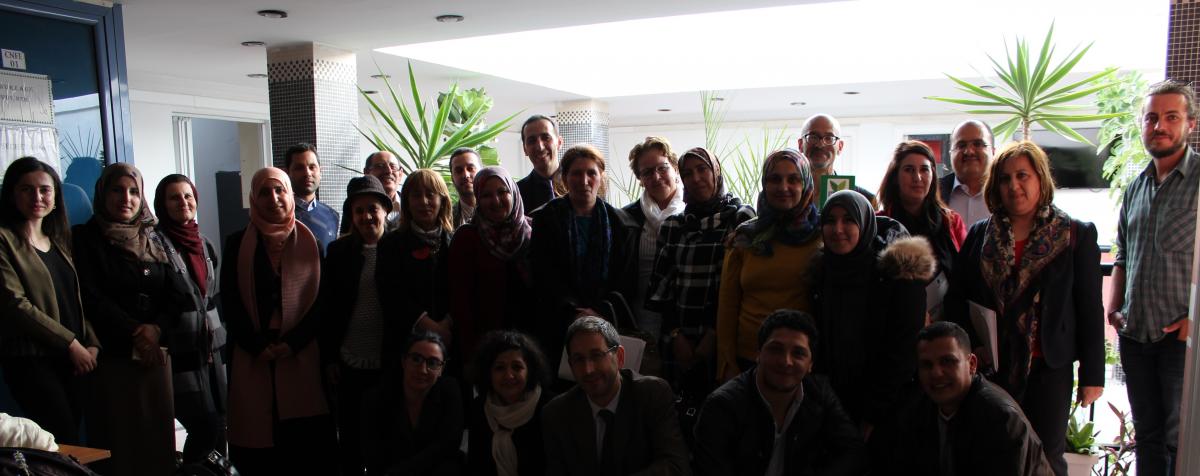
Mars 2018 : Bilan à mi-parcours et formation des OSC
Cherif AOUDJIT | 02/10/2018
Mars 2018 : Bilan à mi-parcours et formation des OSC Du 29 au 31 mars, les dix-sept associations subsidiées dans le cadre du PRCDE ont été réunies d’une part pour faire un bilan à mi-parcours et d’autre part pour bénéficier d’une formation de 2 jours en gestion administrative et financière (GAF). La rencontre a été organisée à Alger au sein du conservatoire national des formations en environnement CNFE, une organisation sous tutelle du ministère de l’environnement et des énergies renouvelables. Le bilan à mi-parcours a permis une rencontre entre les associations et les autres partenaires du PRCDE : le ministère de l’environnement et des énergies renouvelables, les ministères chargés des ressources en eaux, et de la santé et le CNFE. Il a également permis de présenter l’état d’avancement des projets, de mettre en exergue les principaux résultats obtenus ainsi que les opportunités et difficultés rencontrées. Les présentations effectuées par chacune des associations subsidiées ont démontré la nette amélioration des capacités des OSC depuis le début du projet. Il a également mis en évidence le besoin de renforcer le volet « capacités administrative et financière » de ces OSC. Les deux jours de formation-action qui ont suivi ont permis d’approfondir de très nombreux aspects comme ceux du marketing associatif, de la gestion financière et des ressources humaines, de la communication interne, de la recherche de financement, de la comptabilité etc… Le formateur a largement impliqué les participant et le contenu des échanges lui a permis de préciser les difficultés et besoins des associations dans le domaine de la gestion afin d’y répondre au mieux dans le guide d’organisation et de gestion administrative et financière de l’association qui sera remis aux associations. Elles pourront ensuite l’adapter et l’utiliser comme manuel de gestion interne. L’évaluation finale a montré la très grande satisfaction des participants aussi bien associatifs qu’institutionnels qui ont eu l’occasion de prendre connaissance des actions des associations.
-
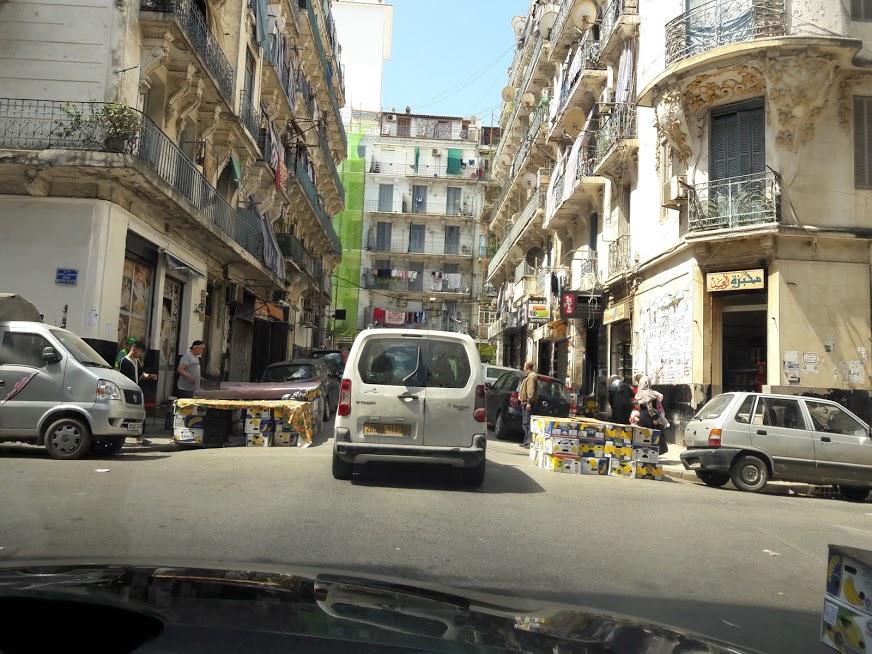
Mars 2018 : Actualisation du Plan de déplacement urbain (PDU) de l’Algérois
Cherif AOUDJIT | 02/10/2018
Mars 2018 : Lancement de l’actualisation du Plan de déplacement urbain (PDU) de l’Algérois Le 22 mars dernier, s’est tenu le Comité de pilotage inaugural du projet d’actualisation du PDU de l’Algérois. Présidé par M. Krim, DG de l’Autorité organisatrice des transports urbains de l’Algérois (AOTU-A), ce Comité de pilotage a notamment permis de caler précisément la démarche de travail et le planning du projet, d’identifier les 6 ingénieurs de l’AOTU-A qui seront formés durant le projet et de commencer à associer les différentes institutions qui seront impliquées dans ce processus : opérateurs de transport en commun, ETUSA, DTWA, EPAL , ETAC port d’Alger, Setram, MEER, MHUV (Ministère habitat) et RATP DZ. Un consortium de 3 bureaux d’étude va mener ce travail en collaboration avec l’AOTU-A : STRATEC, bureau d’étude belge, PROINTEC, bureau d’étude espagnol, L’institut d’Aménagement et d’urbanisme de Paris (IAU). Ils ont pu faire connaissance avec les différents interlocuteurs. Le PDU est un document de planification et de programmation qui guide la politique des transports et des déplacements sur une période de 10 ans. Il concerne aussi bien le transport de personnes que celui des marchandises. Son objectif premier est la promotion des modes de déplacements les moins consommateurs d’énergie, conciliant les besoins des usagers et la nécessité de lutter localement contre l’effet de serre. L’agglomération algéroise compterait environ 7,8 millions d’habitants en 2015. Le périmètre de transport urbain de l’agglomération algéroise englobe tout le territoire de la Wilaya d’Alger y compris les dessertes ferroviaires de banlieue desservant la localité d’El Affroun à l’Ouest d’Alger (Wilaya de Blida) et la localité de Thénia à l’Est d’Alger (Wilaya de Boumerdes) et les dessertes assurées par le transport maritime urbain qui intègrent une partie des Wilayas de Boumerdes et de Tipaza.
-
Mars 2018 : Mission de l’ISP à l’Institut Pasteur d’Algérie
Cherif AOUDJIT | 02/10/2018
Mars 2018 : Première mission de l’ISP à l’Institut Pasteur d’Algérie pour la mise en place d’une plate forme génomique Le 12 mars dernier, le projet relatif à la mise en place d’une plateforme génomique au niveau de l’Institut Pasteur d’Algérie (IPA) - une première en Algérie - a été lancé. Cet appui, consenti dans le cadre de la Coopération Belge au développement à travers le programme de renforcement des capacités dans le domaine de l’environnement PRCDE, apporte outre une aide à l’IPA pour l’équipement de son unité environnement, récemment créée. L’expertise de SCIENSANO, institution belge spécialisée en santé combine différentes disciplines scientifiques complémentaires avec une démarche intégrant plusieurs angles de recherche en santé humaine, santé animale et l’environnement. La mise en plate de cette plate forme génomique permettra à l’Institut Pasteur d’Algérie de détecter, répertorier et étudier les microorganismes (bactéries, virus, protozoaires…) de l’environnement, susceptibles de présenter un risque infectieux pour l’Homme et l’Animal en Algérie. Les technologiques récentes, telles la génomique et la bio-informatique, offrent la possibilité d’aborder l’étude de ces microorganismes de manière très fine. Dans ce cadre, la maîtrise technique de la génomique et de la bioinformatique constituent une priorité pour l’Institut Pasteur d’Algérie en matière d’environnement-santé. L’IPA est un établissement public à caractère industriel et commercial doté de la personnalité morale et de l’autonomie financière sous tutelle du Ministère de la Santé, de la Population et de la Réforme Hospitalière (MSPRH). Créé au mois de novembre 1894 pour le traitement antirabique, l’Institut Pasteur d’Alger est devenu, le 31 décembre 1909, l’Institut Pasteur d’Algérie. Il constitue sur le plan national, un centre de recherche et de référence dans le domaine des maladies infectieuses tant du point de vue de la santé humaine que celle animale. Les missions assignées à l’Institut Pasteur d’Algérie pour répondre à tous ces problèmes touchent à différents domaines: la mise au point et la production de vaccins, sérums, milieux de culture réactifs destinés à la prévention, au traitement et au diagnostic des maladies infectieuses la mise au point de techniques de diagnostic dans le domaine de la microbiologie et de l’immunologie humaine et animale, et la standardisation de ces méthodes pour les mettre à la portée des laboratoires nationaux la formation de cadres scientifiques de haut niveau et de personnels de santé tournés vers les besoins de la santé publique.
-
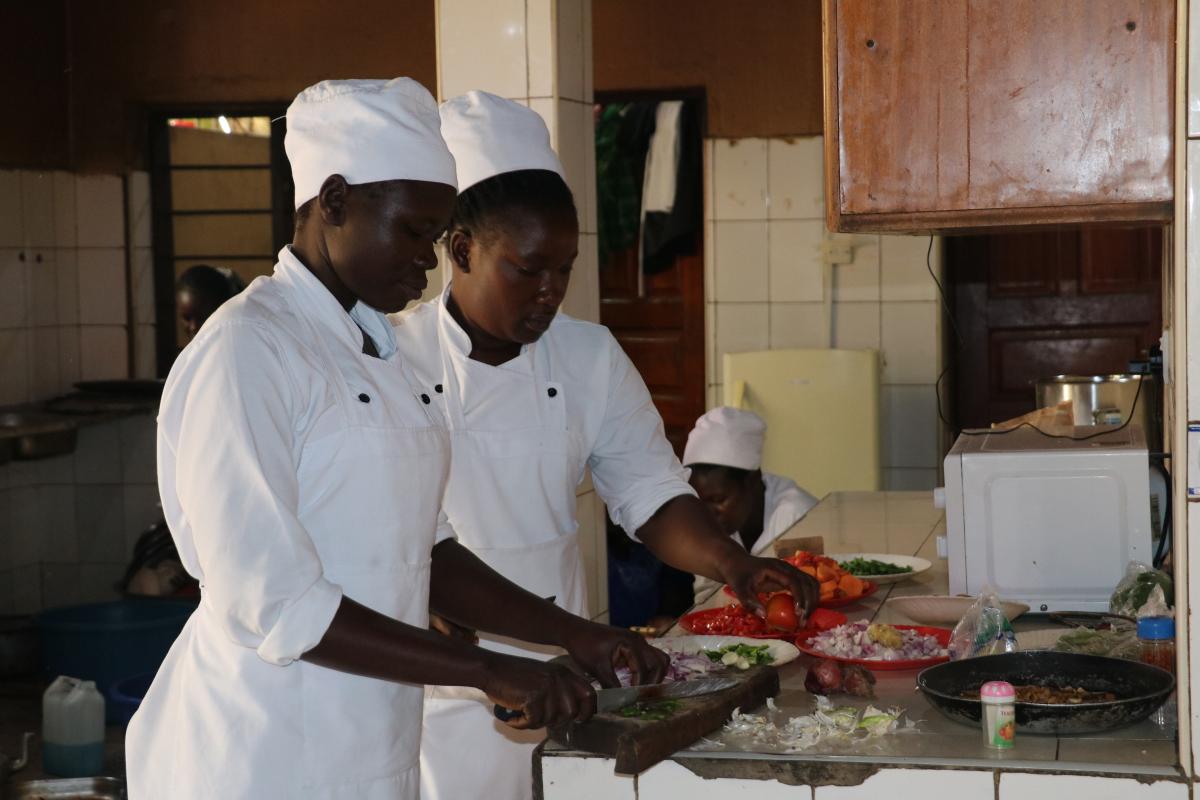
Catering classes light up the future for two orphans
Sylvia NABANOBA | 02/10/2018
Heritage Hotel in Arua district, West Nile region, is a beehive of activity. There is a meeting going on, and the waiters and waitresses are busy setting up tea for the participants. Hotels in Arua have been very busy these past couple of years, a situation catalyzed by the high influx of refugees from South Sudan that has seen both international and national humanitarian organisations set up shop in the area or expand operations, with the resultant increased number of staff as well as programme operations. This hotel is the venue of 27-year-old Farida Zawadi’s apprenticeship. An apprenticeship is a system of training practitioners on a trade or profession with on-the-job training and often some accompanying study (classroom work and reading). Zawadi, a Ugandan national, dropped out of school in Senior Three because her elder brother, who had been paying her school fees since the death of their father, was no longer able to foot them. He had got a family and children of his own to take care of. Zawadi spent the last five years out of school, during which time she fell pregnant and got a son. The fact that she had got a dependent meant that she had to look for a source of income to take care of herself and her child. “I have been helping to run my sister’s salon, and in turn I get money to pay my son’s school fees,” she says. Zawadi got a second chance at education with the EUTF-funded SPRS-NU programme which, working with Enabel, the Belgian development agency, is running a Skills Development and Entrepreneurship Training programme that focuses on equipping youth, including women and girls, with skills that can enable them get employment or start their own jobs. She enrolled through the Centre for Governance and Economic Development (CEGED), a local non-governmental organization, that received funding from Enabel to carry out skills development for youth. Skills development is offered through formal and non-formal institutional training, apprenticeship, and instant training. Zawadi’s trainer, Chef Johns Kafeero, who has been in the hotel business for 38 years, thinks apprenticeship is a strategic training mode for unemployed youth. “When a young person is trained from a workplace, they get first-hand experience. Besides learning how to prepare different foods and beverages, both hot and cold, they are exposed to customers and how to serve and meet their needs,” he says. Indeed Zawadi attests to the fact that she is now an expert at preparing different kinds of meals, including those she had never cooked before at home or even tasted. And it is these skills that she hopes to use to change her life, approaching this with an entrepreneurial outlook. “I would like to go out and start my own catering business,” she says. “I do not have the capital for this now, so I am first going to get a job, save my earnings and open my own business.” Like Zawadi, death also robbed 25-year-old Lillian Yesco of her father, leading her to drop out of school in Senior Three. Having spent four years at home without enrolling in school, Yesco was excited to hear about the skills development programme and enroll on it. “It would give me a chance to not only make something of myself, but to also take care of my siblings,” she says. Yesco’s six siblings are in primary school, a feat they manage by doing odd jobs to raise their own school fees. During the holidays and sometimes in the evenings after school, they dig in neighbours’ gardens at a fee, and also grow cassava, sorghum and simsim on the family land for sale. “They are too young to take care of themselves, but for now they do not have a choice. When I start working, all that will be no more,” she says hopefully. So Yesco is now an expert at baking, taking delight in making queen cakes, cookies, chapatti and mandazi. She has also learnt how to prepare dishes such as beef and chicken stew, which are quite popular with customers in the area. About the programme Zawadi and Yesco are young Ugandan women benefiting from the Support Programme for Refugee Settlements in Northern Uganda. Funded through the European Union Emergency Trust Fund for Refugees, the programme not only seeks to change the livelihoods of refugees but also those Ugandans/host communities who live within and around the refugee settlements in Northern Uganda and Kiryandongo in adherence to the Refugee and Host Population Empowerment (ReHoPE) strategy.
-
Nouveau record pour l’amandier
Meriem HILALI | 01/10/2018
Le projet de Développement de la filière de l’amandier dans l’Oriental contribue à l'amélioration des revenus des populations de la région de l'Oriental. Plus spécifiquement de faire en sorte que la filière des amandiers soit mieux développée, valorisée et gérée de façon durable par les habitant(e)s des communes rurales concernées. Lien : https://goo.gl/6XV9Ln
-
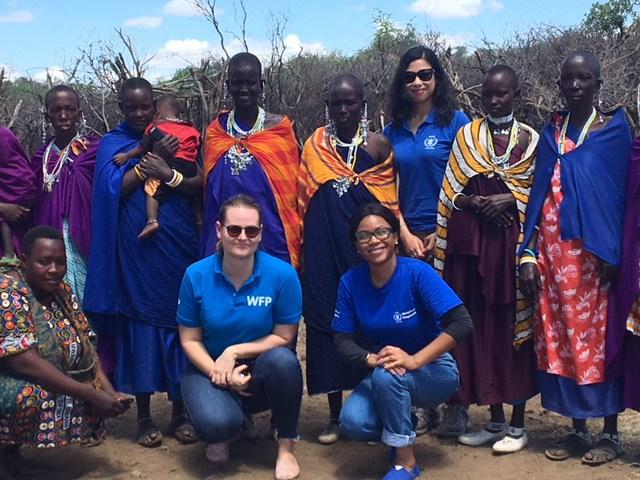
Remote Data Collection: a promising synergy between Enabel and WFP
Mathias LARDINOIS | 28/09/2018
Karibu #Tanzania! After a successful formative study with pastoralist communities in the north of the country, WFP and Enabel intend to collect remote data on key #food security & #nutrition indicators very soon. Read more:http://mvam.org/2018/08/20/karibu-tanzania/
-
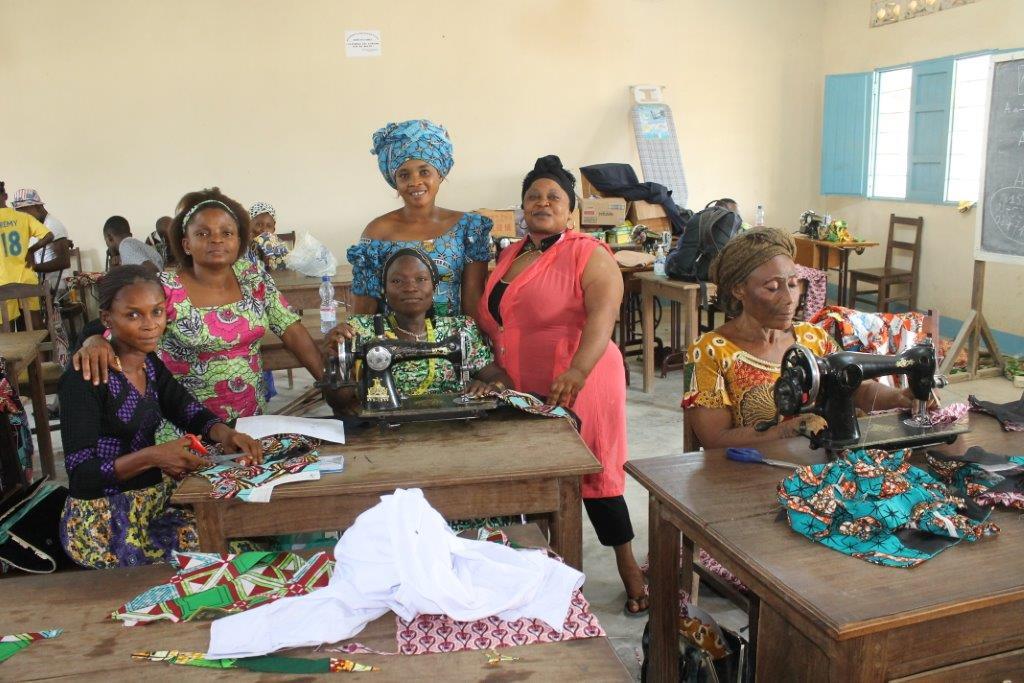
Renforcement des compétences en coupe/couture et en gestion de deux associations des personnes vivant avec un handicap à la Tshopo.
Michael MALEMBA | 24/09/2018
Le Programme a mis sur pieds une formation visant l’amélioration des compétences technique et gestion en coupe /couture à destination des membres de l’Association des Personnes Handicapées pour le Développement (APHD) et de l’Atelier Lutte contre la Mendicité (ALCM). En même temps, le Programme a également pris en charge la réfection de deux ateliers de coupe et couture appartenant aux deux ONG ainsi qu’une dotation importante en équipements de qualité. Avec comme ambition principale de favoriser l’insertion professionnelle des bénéficiaires membres de ces associations dans l’environnement socio-économique local et de poursuivre la mise en place du stage professionnalisant organisé en partenariat pour les sortants des écoles. L’APHD et l’ALCM disposent chacune d’un atelier de couture qui permet aux membres de vivre de leur travail en dépit de leurs handicaps physiques.Ces associations accueillent chaque année des stagiaires venant d’autres centres de formation dont le centre SIMAMA, spécialisé dans la rééducation physique et l’insertion professionnelle des personnes vivant avec un handicap physique. Cette formation au bénéfice des 21 membres d’APHD et d’ALCM vise à renforcer leurs capacités en encadrement des stagiaires des écoles appuyées par le programme. Deux artisans expérimentés ont dispensé une formation axée sur la pratique et en particulier sur la prise de mesures, la confection complète de vêtements y compris la broderie et l’utilisation de la surjeteuse et de la machine à presse bouton. Des modules de gestion de micro-entreprise ont été dispensés : Ressources humaines, marketing, amortissement des équipements, rôle d’un maître de stage, comptabilité élémentaire. Ces différents modules ainsi que l’appui matériel apporté doivent permettre de booster les activités de ces deux associations. Le programme se positionne donc de façon volontariste en faveur de la formation et de l’insertion professionnelle des jeunes.
-
No books here, only practical!
Hanna DEKERK | 23/09/2018
Atugonza Shadrack opened his welding workshop in Masindi two years ago. Today he trains two apprentices in there, while catering to his clients. “At Shadrack Metal Works the students first observe the work but then they do it themselves. There are no books here, only practical! “ As an experienced artisan, Atugoza has much practical knowledge to pass on to his apprentices. The challenge is that he doesn’t really know how. That is why the Support to Skilling Uganda (SSU) project organizes pedagogical trainings for mastercraft persons like him. Topics range from coaching techniques, to activity planning and financial management. Mastercraft persons are taught to use Skills Development Plans to develop a curriculum for practical training. This is to avoid that the apprentices keep repeating the same tasks or do tasks that are irrelevant for their education. The curriculums are based on the Assessment Training Package of the Ugandan Ministry of Education.Atugonza also found it useful to participate in SSU-organized trainings on Customer Service and Safety Provisions. “Now I know how to deliver quality work, while keeping safe working conditions in my shop. It makes me embrace higher standards.” At the workshop Atugonza teaches the apprentices to cut metal and weld items such as windows and doors. He encourages them to take classes at technical institutes in the region, as this will broaden their knowledge and allows them to get certified. By upgrading the pedagogical skills of these artisans, the SSU project aims to improve the quality of practical training in the Albertine-Rwenzori region.
-
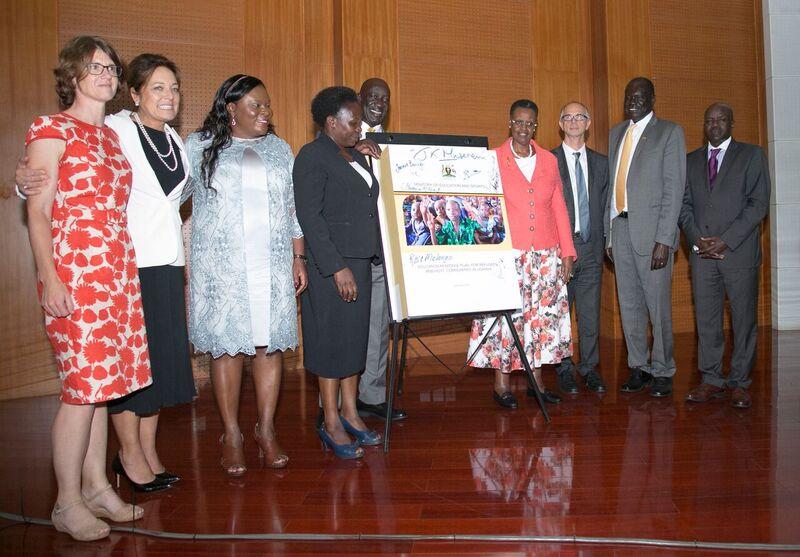
Uganda launches new Education Response Plan for Africa’s biggest refugee crisis
Sylvia NABANOBA | 21/09/2018
The Government of Uganda, Partners in Development, UN agencies and NGOs have launched a new Plan that if funded will provide quality education for hundreds of thousands of refugee and host community children in Uganda. The Education Response Plan (ERP) is the first of its kind worldwide and represents a huge policy step forward for refugee education globally. It sets out exactly how to address a crisis where more than half a million children are out of school. 57% of refugee children in Uganda (at least 353,000) and 34% of local children in refugee-hosting districts (around 171,000) do not have access to education[i]. Uganda hosts the largest number of refugees in Africa, and is one of the top refugee-hosting countries worldwide. The Plan, which was developed within the framework of the Comprehensive Refugee Response Framework (CRRF) recently adopted by all nation states, confirms Uganda’s leading global role. At country level, the Office of the Prime Minister (OPM) and the Ministry of Local Government, with UNHCR playing a catalytic role, coordinates implementation of the Framework[ii]. More refugees continue to arrive daily, with most fleeing from extreme violence in South Sudan, Democratic Republic of Congo and other conflict-affected countries. More than 130,000 have arrived this year alone, and at least 61% are children under the age of 18. The influx is putting a severe strain on already limited school resources in local communities. Many classrooms have no walls or electricity and lacking latrines and basic sanitation facilities that are needed to accommodate so many children safely and with dignity. There is also a drastic shortage of teachers and basic materials such as books and desks. The Hon. Janet K. Museveni, the First Lady of Uganda and Minister of Education and Sports, said: “This is a children’s crisis. None of these children chose to become a refugee, but they have had their lives ripped apart. Now we must give them the chance of a future. “Education is hope. It brings a sense of normalcy to their lives ravaged by war and suffering. It protects them and helps them cope with their difficult situation, and builds a foundation from which they can reach their potential. Education is vital if we are to break the vulnerability created by conflict and displacement. “We are committed to helping these children, but now Uganda needs support to make this Plan a reality. Together we can and must ensure that all children get the opportunity to access inclusive, quality education at all levels.” The ERP has been developed by the Ministry of Education and Sports, with support from international donors, UN agencies and development organisations in Uganda. “Enabel welcomes the Education Response Plan, and has worked together with the Ministry of Education and other partners in its development, as member of the steering committee. The ERP will give an opportunity to refugee children to attain education and skills development, which will empower them and help shape their future and that of their nations of origin,” said Niels De Block, International Skills Development Expert at Enabel. Enabel is already contributing to the provision of education for refugees and host communities in Uganda through the Support Programme for Refugee Settlements in Uganda (SPRS-NU). Funded by the European Union Emergency Trust Fund, through SPRS-NU Enabel runs programmes that equip youth, women and girls with employable skills that can enable them get employment or create their own jobs. This year alone, 1,480 youth are benefiting from the programme. The Government of Uganda has been serving as a model example in the international community by granting refugees asylum and access to the same rights as its citizens. However, more support is urgently needed from the international community to ensure the Plan can be implemented. The Plan has been developed to align closely with Uganda’s Education Sector Strategic Plan (ESSP) for 2017-2020. It aims to improve access to and quality of learning across all forms of education in Uganda’s 12 refugee-hosting districts, through activities including: - Constructing new classrooms and repair existing ones in order to make schools safer and more accessible – for example - so that children with disabilities can attend; - Providing essential materials such as textbooks, desks and stationery; - Addressing teacher gaps and capacity to deliver quality education to refugees and host community learners; - Strengthening the national and district level education system for effective and sustainable service delivery; - Getting older youth who had dropped out of school back into education, through Accelerated Education Programmes and vocational training; and - Piloting innovations in education. [i] Figures for refugees are available for 8 of the 12 refugee hosting districts. [ii]The Comprehensive Refugee Response Framework (CRRF) was adopted by all 193 Member States of the United Nations in September 2016 as part of the New York Declaration for Refugees and Migrants.
-
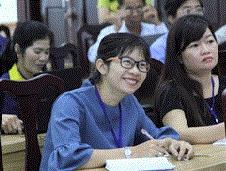
IT application in education management - Binh Thuan province
Huong TRANTHANH | 19/09/2018
Binh Thuan is one of the coastal province of Vietnam with more than 90% of the landscape covered by mountains, island and resident by ethnic minorities. In the school year 2015-2016, Binh Thuan Education and Training Department (Binh Thuan DOET) started to apply VnEdu – a software developed by VNPT at all primary, lower secondary and upper secondary schools in the province. The software was considered an effective tool that can help schools to better manage its education activities. Provincial education managers also need a comprehensive and unified data base for better planning and managing education developments in the province. However, many school staffs in remote area were lack of basic IT skills, nor understand the tool’s features and could not use the software effectively. Binh thuan DOET joined the call for proposals launched in June 2016 by FCB project for capacity development. After several evaluation rounds and negotiations, the province got a Grant of nearly 85,000 Euros for training and coaching for 370 education managers from 185 schools (over 436 schools in the province). The beneficiaries include 350 principals and vice-principals of schools in difficult, remote and island areas and 20 education administrators in DOET. The training guided the trainees on how to use management features of the software for planning and reporting, use of e-books, messages, school website, management of official documents, statistical reports ... These education managers are now using full features of VnEdu to manage the school’s operations. The software helps to connect teachers and school managers with parents effectively to follow up and support their children’s study. Thanks to the software, the school now have unified database that save them a lot of time in compiling reports, managing school staffs and making educational plans. E-books feature helps the school managers to manage activities in different school sites more easily. Below are some testimonies of the beneficiaries on their school’s websites: "The functions and utilities of the VnEdu Software really help the school and teachers manage their staff, students, academic records, as well as school finance and properties. It also creates a website for posting, writing article captures the best moments of teachers and students in all the school's teaching and learning activities. Thanks to the training provided by FCB project, I am now very confident in using Microsoft softwares to design my lesson. I also help other teachers to create more lively and attractive lectures”. - Nguyen Ngoc Trang, Principal-Hoa Thang Elementary School "Right after the training, I trained other teachers in my school and instructed them to apply some utilities of the software in the process of teaching and managing students. I also posted some news and photos about the school's activities on my school’s website. At present, the school has been exploiting quite a lot of utilities of Vnedu. In the coming time, we will continue to learn to exploit more facilities to help management, teaching and learning of the school faster, more convenient, more scientific”. - Ha Thi Thuy – Hoa Thuan Primary school, Bac Binh, Binh Thuan "The application of VnEdu software has helped create interactive social networks, connecting school members. It also create a connection between the family and the school, as a reliable online data warehouse. Information that the school sends to parents is fast, timely through the most popular means such as mobile phones, the Internet or MyTV television ... VnEdu e-mail solution helps the management of schools, teachers are convenient, and helps parents to capture the results of learning and training of their children in the fastest way " Tran Thi Thuy Vy-http://thpt.buithixuan.binhthuan.vnedu.vn/
-
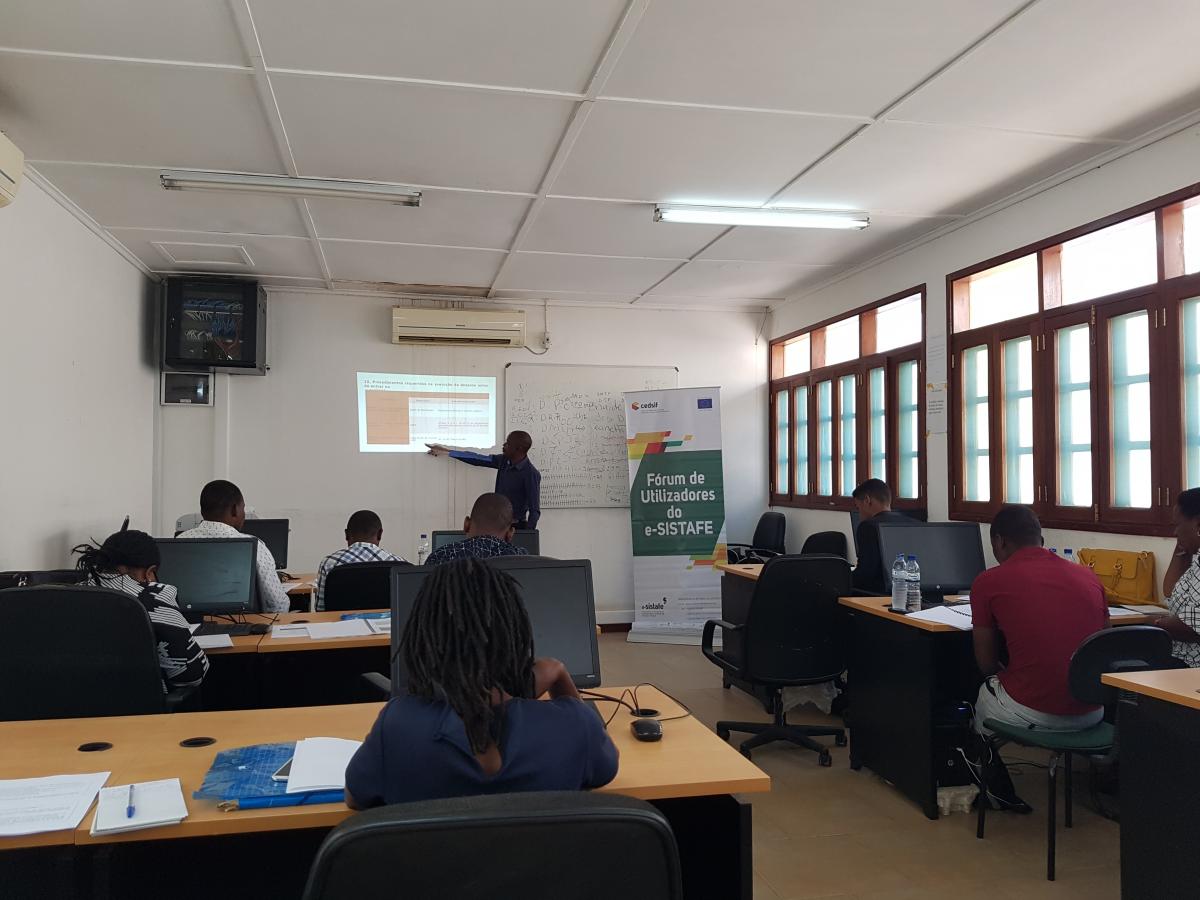
Fostering decentralization of public financial management: e-SISTAFE workshop for accountants in the rural districts of Tete
Anke VANDEVELDE | 18/09/2018
Fostering decentralization of public financial management through capital and skills investment:e-SISTAFE workshop for accountants in the rural districts of Tete In the last week of August 20 participants responsible for accountancy in the health sector in rural districts of Tete Province were brought together in the provincial capital Tete for a training financed by Enabel’s GTAF II project. The aim of the training was to provide the participants with a clear theoretical and practical knowledge on the Integrated Financial Management Information System, locally known as e-SISTAFE, the electronic system used for managing the expenditure of public sector administration. Enabel Mozambique and PFMSince 2013, Enabel together with the Government of Flanders has been implementing this project with the aim to improve the Public Financial Management (PFM) in the Mozambican Ministry of Health with the engagement of a technical assistant to GTAF, the working group on audit and finances. This year the project has initiated its third phase and will focus mainly on promoting comprehensive dialogues in the health sector, supporting a sound financial management system in actual and future reforms and further strengthening PFM aspects with a main focus on linking financial input with service delivery, a link that is not clearly identifiable yet. Ancient PFM regulationsThe management of public finances in Mozambique was until 2002 regulated by ancient regulations dating back to the end of the 19th century (the “1881 Regulation on Public Accountancy”, as well as the “1901 Regulation on Treasury”). In the late 90’s it became clear that a reform and modernization of the financial administration was indispensable and therefore imminent. In 2002, a new “System of Financial Administration of the State” (SISTAFE) finally saw daylight through the Law of 9/2002 and the Decree of 23/2004, including a digital platform “e-SISTAFE”. This system aims to bring more transparency in the accountancy processes, to harmonize the rules and procedures, to bring together reliable information, to implement a sound internal control and audit system and to allow an efficient, adequate and correct financial-economic conduct of activities. The roll-out of e-SISTAFE is currently still ongoing and is supported by Enabel’s project. Decentralization of PFM: from UGB to UGESince 2002, SISTAFE governs the way public institutions have to manage the expenditure and the roll out of e-SISTAFE is taking place in several waves: it started with institutions at central level and is expanding to all budget units. Budget units are “UGB” (Unidade Gestora Beneficiária). Yet if a UGB is also a “UGE” (Unidade Gestora Executória) it can execute its share of the budget independently. Otherwise, the UGB depends to its hierarchical UGE to execute its payments. Thus, the visibility in the budget, as well as procedures and categories of payments, differ according to whether the institution is an executive or a beneficiary public institution. The latter’s budget and expenditures depend on and is clustered with the UGE. If the District Services of the Health Sector (SDSMAS) is a UGB, it will have to rely on the District Secretariat (which is the UGE) for its payments. Yet, the District Secretariat is also in charge of other public services for that district (such as Service for Education – SDEJT – and for Public Infrastructure – SDPI). The government of Mozambique has undertaken several waves of decentralisation by creating the conditions for entrusting the financial management to the institutions responsible for one specific kind of service to be delivered. The Ministry of Health – with modest Enabel support – targeted few UGB that are or will soon be converted into UGE. From now on, they have to manage their own expenditure and execute payments themselves.Practical exampleParticipants to the course were very positive about the decentralization process of PFM as it would make the payment process easier. They reported that currently, many of the payment orders were held pending by the UGE and therefore the Health UGB suffered delays in payments. Indeed, the release of funds to a UGE is linked to the expenditure performance: this implies that if one of the services is underperforming all the other services will take the burden. For the sake of clarity, let us suppose that in the month of March in Pandza District[1] there are two payments to be done, one for the Pandza Rural Hospital and one for the Pandza Primary School. Let us suppose that a supplier to the Pandza Primary School is not issuing the invoice for final liquidation of expenditure. The District Administration, that is the UGE, can neither execute that expenditure nor apply for new liquidity for the month of April, practically blocking all the payments of the entire UGE due in April and thus also the payments for the UGB Pandza Rural Hospital. As targeted institutions will soon become UGE, they will be shielded from problems with other UGBs. In addition, they will receive more responsibilities and more autonomy in relation to expenditures and budgeting. Course contentIn a first stage, the course provided the participants with a clear theoretical background of SISTAFE about its history, objectives, structure, financial regimes, budget planning, execution procedures, ethical questions (such as pre-payments), etc. In light of the decentralization process of PFM, the practical exercises were especially of importance to the participants. Although most of them indicated to have worked with the informatics platform e-SISTAFE in their daily work, the transformation from UGB to UGE has brought many more new proceedings to be executed by these financial accountants. The instructors showed them the different procedures they will be responsible for from now on and which steps they have to take for each one of them, as well as briefed them on the classifying codes and how to consult the different reports in e-SISTAFE. The participants were very optimistic and stated that the course successfully tackled the gaps they were confronted with after the decentralization of PFM. They were confident that they now have sufficient knowledge to successfully process all payments, from beginning to end, through e-SISTAFE.Skills and capital investmentThe fostering of the decentralization process of public financial management by Enabel’s GTAF phase III project does not only consist of a skills development part through this e-SISTAFE course. It also includes a part linked to capital investment, through the installation of equipment in the targeted institutions. The equipment consists of 3 working stations (required for the segregation of the functions for authorising a payment) and a networking system so that the operator will work in real-time in the e-SISTAFE which in turn is linked to the Single Treasury Account. PFM... For service deliveryThe full scope of Public Finance Management, however, is often forgotten. A sound PFM system ultimately aims at providing an instrument to better organise and manage the service delivery functions. Making the link between the former and the latter is a step too often neglected, limiting the PFM scope is to merely transparency and accounting. Nevertheless, a meticulously filled out expense table where all expenditures are linked to functional and programmatic classifying codes will provide a wealth of information: (a) on how budget allocation are financing services and (b) on how to orient budget cuts (or budget scale up), which implies reducing the level of services (or increasing them), if the situation requires it. It would provide information to the management on what the consequences on other services would be and how budget policy decisions influence the delivery of public services, and vice versa how changes in public service delivery can be traced back to budget modifications. All this information will allow for a more informed decision on budget planning and execution. Hence, the accounting system e-SISTAFE, has the potential to become a management tool, but for now it seems that there is either no demand or interest or awareness with managers and policymakers. An important role is assigned to the technical assistant of Enabel’s GTAF III project in raising awareness to correctly use e-SISTAFE not only as an accountancy tool, but also and foremost as a management tool for service delivery*. - Article written by Damiano Stella and Anke Van de Velde * For more technical information on PFM for service delivery, we would like to announce that a technical analytical paper is currently being written by the project, in order to better understand and deal with the link between PFM and service delivery. [1] Pandza is a youth slang used to refer to Mozambique in general and originates in a popular song: https://www.youtube.com/watch?v=XIw1xDorB_w.
-
Mungula Health Center IV sets up a Blood Transfusion Centre
Rachael AYEBALE | 18/09/2018
Following a training in a blood transfusion course, Mungula Health Centre IV has moved strides in putting into action the skills and knowledge they acquired from the training.Before the training, a needs assessment for the facility was done and the facility identified transfusion services as their greatest need. A trainer was thus identified to deliver a training in the area and the knowledge and skills gap was thus closed. The training was attended by 15 facility staff and as is expected after every Support to the Development of Human Resources training, action points are set with clear performance indicators and timelines of implementation.In the action plans set by Mungula after this training, they planned on designing and producing standard operating procedures for the health facility blood transfusion practices, form a health center transfusion committee to oversee internal supervision and to carry out continuous medical education for staff members on topics related to blood transfusion medicine.Emmanuel Aniape, the hospital in-charge, states that the training was fruitful and the results on the ground are visible and he further states, “we now have a blood transfusion unit that even supplies to the main hospital.”As a standard operating procedure, blood grouping and cross matching is done to confirm that the blood to be transfused is a pure match even when the blood arrives already marked and grouped. This ensures the patient is a confirmed match for the blood.Their laboratory is well equipped to handle the blood groupings and cross match with staff that attended the training.On a few occasions, this knowledge and action I place has helped them save lives of patients in dire need. As he narrates, “There is a mother we gave back life. It took 3 units of blood and an able team to transfuse the blood. If we hadn’t gotten the training, she would be no more. For that and many others, we are grateful.”One of their greatest challenges however is electricity. They run the blood store on solar power that may not be sufficient. This thus forces them to only stock a few pints that can fit in their small refrigerator. Also, the blood bank that supplies the blood to them sometimes takes a longer time to supply them blood and in cases of emergency, they have no blood in their store.All in all, the facility is grateful for the training that they are using to save lives that would have been lost otherwise.

